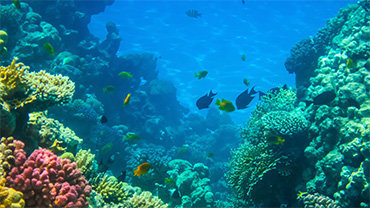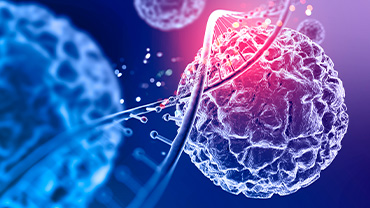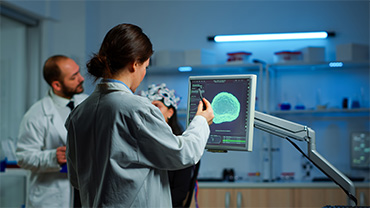-


-
Studies of biodiversity and evolutionary biology are closely related and are a central field within the biological sciences. On the one hand, biodiversity is a concept that involves several levels of biological organization. It ranges from genes to ecosystems, through individuals and how they are taxonomically structured. Biodiversity studies are due to meet basic or applied need to measure, inventory, conserve and manage the variety of biological entities that nature hosts. The emphasis on conserving and managing shows the applied implications of the concept of biodiversity. The programme has had mentions of recognition since they were created, either the Quality Award or the newly formed Excellence Award. The University of Valencia, mainly in the departments associated with the Faculty of Biological Sciences and the Institute of Biodiversity and Evolutionary Biology, has the material and scientific and academic ability to undertake a doctoral programme in biodiversity and evolutionary biology. In addition, there are centres in which CSIC participates that work assiduously in this training area, as IBMCP (Institute for Plant Molecular and Cell Biology); joint centre CSIC-Universitat Politècnica de València) and CIDE (Desertification Research Centre; Joint Center CSIC-University of Valencia, Valencian Government).
-
Specific admission requirements
As general entry requirement they should be contemplated in some of the presumptions of the article 6 of the RD 99/2011 or of the second additional provision of such Royal Decree.
ENTRY REQUIREMENTS/CRITERIA:
As a specific requirement must be met:
(a) Previous studies
(a.1) They must have completed the Master’s Degree in Biodiversity or the Master’s Degree in Integrative Evolutionary Biology of the University of Valencia associated with the doctoral programme. In the event of holding the Diploma d'Estudis Avançats
(DEA-a tertiary education degree)- obtained according to the Royal Decree 778/98– or the Research Proficiency- according to the regulations of the Royal Decree 185/85– , they must have been completed within Doctoral Programmes related to this.
(a.2) Also may be admitted who have completed other master’s degree studies or others studies of a similar level, whether they come from higher education systems which do not provide the Master’s degree -- with related content in the field of biology and its methodologies that represent at least 30 credits.
(b) Recommendation.
Although letters of recommendation are not required, it is recommended that the candidate for admission establish prior contact with any of the professors of the programme for a future direction or co-direction of the doctoral thesis.
(c) Languages
Applicants must demonstrate their knowledge of the English language equivalent to level B1 (European classification).
If applicants do not have the certification and English is not their first language, they will be able to take an ad hoc exam. For this, if the applicant has a disability, the Unit for the Integration of People with Disabilities of the UVEG will be consulted in order to ensure the appropriateness of the exam. The students who fulfil the requirements will entry the doctoral programme, and the Doctoral Studies Academic Committee will be the responsible for verifying the compliance of the above requirements for the admission of the applicant.
Admission criteria:
STUDENTS WITH SPECIAL EDUCATIONAL NEEDS:
Regarding to entry systems and procedures adapted to students with special educational needs, the University of Valencia has the Unit for the Integration of People with Disabilities (UPD), which ensures the respect for the principle of equal opportunities and non discrimination and supports the collective of students with special educational needs. The “Service Charter” of this unit (http://upd.uv.es/index.php/cartaservicio.html), informs about quality commitments and rights and duties of users.
Likewise, and according to the Royal Decree 1892/2008, of 14 November, which regulates the conditions for accessing to official university undergraduate degrees and the admission procedures to Spanish public universities , the 5% of places available will be reserved for students who have a recognised disability of at least 33%, as well as for those students with permanent special educational needs associated with personal circumstances of disability, who during their previous academic life have needed resources and support for their full educational normalisation. -
Specific activitiesCodeNameHours50316Asistencia a seminarios o conferencias3050317Redacción manuscrito científico10050318Asistencia reunión anual de estudiantes12050319Organización reunión anual de estudiantes5050320Ponencia reunión anual de estudiantes5050340Redacción de un artículo breve de divulgación u opinión científica50
-
Program code: 3101Regulation: Royal Decree 99/2011Specific website of the doctorate: www.uv.es/doctoradobiodiversidadOrganisation: Faculty of Biological SciencesManagement Centre: Postgraduate SchoolUniversities: University of ValenciaProgramme Coordinator: Dr. Rosario Gil GarcíaPlaces offered for new recruits: 20 places
-
Research lines:
3101 Biodiversity and Evolutive Biology
- Diversity, Physiology and Vegetal Development
- Integrative Water Ecology
- Developing and Behavioural Ecology
- Terrestrial Animals Ecology and Diversity
- Vegetal Ecology and Development
- Virus and Bacteria Development and Variability
- Evolutionary Genetics
- Essential and applied Etymology
- Limnology
- Paleonthology
- Microbial Diversity Taxonomy and Conservation
- Marine Zoology
-


-
The interest in biomolecular disciplines has shifted from basic research to laboratory applications in health and biotechnological companies, in a process with scientific and social implications. On the one hand, the future professionals in Molecular Sciences must know the molecular mechanisms that govern the function of organisms with biotechnological interest, or of the human body in health and disease, in order to adapt its specific terminology to these professional areas facilitating the exchange of knowledge about diagnosis, prognosis, experimental and therapeutic components of biotechnological and healthcare processes. On the other hand, the professionals on life sciences should know in depth the methodological tools of their field and its analytical potential with an interdisciplinary perspective that is imposed for the future of these areas. This doctoral program aims to train specialists to face this highly relevant dialogue.
-
Specific admission requirements
Entry requirements:
1. To have taken and completed a minimum of 60 ECTS of the followings Master’s Degrees of the University of Valencia:- Master’s Degree in Biotechnology and Assisted Human Reproduction
- Master’s Degree in Molecular, Cellular and Genetic Biology
- Master’s Degree in Molecular Approaches in Health Sciences
- Master’s Degree in Bioinformatics
- Master's Degree in research and development in Biotechnology and Biomedicine
2. To have passed 60 credits included in one or more University Master’s degrees.
This modality may include training complements
3. To hold a Diploma de Estudios Avanzados (Tertiary Education Diploma) obtained according to the provisions of the Royal Decree 77/1998, 30 April, or to have reached the research proficiency regulated by the Royal Decree 185/1985, 23 January.
4. To hold an Undergraduate Degree whose duration according to the rules of Community Law is at least of 300 credits.In the cases 2, 3 and 4 of the entry requirements and depending of the project Doctoral thesis presented, the Academic Committee of the Doctoral Programme will consider if the studies taken are equivalent to those required for accessing to the research period of this programme (case 1) and, if applicable, the student is required to take any module or curriculum of some of the Master’s Degrees mentioned in the section 1.
The admission in the Programme of students from another country requires that their Master’s degree should be recognised in the University of Valencia. -
Transversal activitiesCodeNameHours
-
Program code: 3173Regulation: Real Decreto 99/2011Specific website of the doctorate: https://www.uv.es/uvweb/doctorado-biomedicina-biotecnologia/es/programa-doctorado-biomedicina-biotecnologia-1285885301480.htmlOrganisation: Faculty of Biological SciencesManagement Centre: Postgraduate SchoolUniversities: University of Valencia (General Study)Programme Coordinator: Dr José Enrique Pérez OrtínPlaces offered for new recruits: 40 places
-
Research lines:
3173 Biomedicine and Biotechnology
- Biotechnology of assisted human reproduction
- Biomedicine
- Microbiology and Microbiological Biotechnology
- Plants Biotechnology
- Food Biotechnology
- Genomics, Proteomics and Bioinformatics
- Molecular Biology and Genetics
-


-
Doctoral Programme in Neurosciences covers one area of knowledge. The Spanish parliament, in fact, made of 2012 the year of Neuroscience in Spain. Within the field of biomedicine, neurosciences occupies a relevant position, for example, for the research challenges that neurodegenerative illnesses have become; illnesses like Alzheimer or Parkinson, which require an important material and human effort. In the human aspect, there is a need to train highly-qualified scientists who can cover the postdoctoral positions that research teams may offer in the following years. Despite possible employability in other research centres, most research centres in the city of Valencia keep research groups in neuroscience research and participate in the present doctoral programme proposal.
-
Specific admission requirements
ENTRY REQUIREMENTS:
As general entry requirement they should be contemplated in some of the presumptions of the article 6 of the RD 99/2011 or of the second additional provision of such Royal Decree.
ENTRY REQUIREMENTS/CRITERIA:
a) Appropriate profile. Those students who have taken the Master’s degree in Basic and Applied Neurosciences by the UV or the Euromediterranean Master’s degree in Neurosciences
and Biotechnology in the ISIS-Tempus consorce. These master’s degree are associated to this doctoral programme. In the event of holding the Diploma d'Estudis Avançats (DEA-a tertiary education degree)- obtained according to the Royal Decree 778/98 or have obtained the Research Proficiency according to the regulations of the Royal Decree 185/85–, they must have been completed it within Doctoral Programmes related to this.
b) Other profiles. B) Those who have completed other master’s studies different to those mentioned before may be also admitted. The Doctoral Studies Coordinating Committee will study each particular case and will determine, if necessary, the need to take complementary training while taking the master’s degree.
The students who fulfil the requirements will entry the doctoral programme, and the Doctoral Studies Academic Committee will be the responsible for verifying the
compliance of the above requirements for the admission of the applicant. -
Transversal activitiesCodeNameHoursSpecific activitiesCodeNameHours50093Reunión de seminarios de grupo y journal clubs1050110Preparación de comunicación oral o póster en congreso nacional o internacional1050111Trabajo experimental en el laboratorio del propio grupo de investigación80050112Participación en congreso nacional o internacional2450114Estancias en centros nacionales o extranjeros7050123Estancias en los laboratorios de otros equipos de investigación del propio programa de doctorado en Neurociencias3550124Preparación publicaciones indexadas2850135Asistencia a jornadas científicas7
-
Program code: 3142Regulation: Royal Decree 99/2011Specific website of the doctorate: www.uv.es/doctorado-neurocienciasOrganisation: Faculty of Biological SciencesManagement Centre: Postgraduate SchoolUniversities: Universitat de València Estudi GeneralProgramme Coordinator: Dr Enrique Lanuza NavarroPlaces offered for new recruits: 40 plazas
-
Research lines:
EQUIPO DE INVESTIGACIÓN 1- Neurobiología molecular, funcional y comparada.
Líneas de investigación
1. Neuroanatomía de la conducta
2. Mecanismos neurales de la conducta social, sexual y parental. Neuroanatomia de la amígdala. Neurobiología de los sistemas olfativo y vomeronasal
3. Neurodesarrollo, neurobiología celular y molecular, factores neurotróficos, ratones transgénicos, neurogénesis y diferenciación, precursores neurales y células madre, epigenética de las células madre, neurodegeneración, enfermedad de Parkinson
4. "Deep Networks" en el cerebro visual: de la neuroimagen a la decodificacion de la información visual
EQUIPO DE INVESTIGACIÓN 2- Función cognitiva y motora. Mecanismos. Deterioro neurológico. Mecanismos y terapéutica.
Líneas de investigación
1. Función cognitiva y motora. Mecanismos. Deterioro neurológico. Mecanismos y terapéutica.
EQUIPO DE INVESTIGACIÓN 3- Neurobiología.
Líneas de investigación
1. Plasticidad estructural neuronal: Implicación en desórdenes psiquiátricos.
2. Microcircuitería del bulbo olfatorio de mamíferos
3. Epilepsia experimental
4. Estudio de sistema nervioso central de modelos animales de síndrome de Down.
5. Asimetrías hemisféricas morfofuncionales en población neuropsiquiatrica y en cerebro normal
6. Bases moleculares y modelos de enfermedades neurológicas: ataxia de Friedreich y esquizofrenia
EQUIPO DE INVESTIGACIÓN 4 - Neurogenética y Neurobiología del desarrollo.
Líneas de investigación
1. Neurobiología del Desarrollo
2. Neurogenética
3. Células Madre y Envejecimiento
4. Bases Moleculares de la Neurodegeneración
EQUIPO DE INVESTIGACIÓN 5- Mecanismo de acción del etanol en el sistema dopaminérgico mesolímbico.
Líneas de investigación
1. Acciones del etanol sobre la actividad del sistema dopaminérgico mesolímbico: papel de los metabolitos originados a nivel cerebral
2. Patrones de actividad neuronal en los circuitos prefrontal e hipocámpico en modelos de estrés y depresión
3. Efectos sobre el tráfico intracelular en patología neurales
4. Molecular and Cellular Pathology of Alcohol
EQUIPO DE INVESTIGACIÓN 6 – Psicobiología.
Líneas de investigación
1. Neurociencia social: bases biológicas de la interacción social. Vulnerabilidad y biomarcadores de los efectos del estrés en el procesamiento afectivo y cognitivo. Quejas subjetivas y deterioro cognitivo según edad y sexo. Función cognitiva y conductes adaptativas en pacientes diabéticos.
2. Consecuencias del consumo de alcohol tipo Binge Drinking y del estrés social crónico sobre la memoria durante la adolescencia y juventud (un estudio longitudinal en humanos. Consecuencias del consumo de alcohol tipo Binge Drinking y del estrés social crónico sobre la memoria durante la adolescencia en animales y humanos.
3. Neuropsicología de la epilepsia. Estrés y toma de decisiones.
4. Brain-computers-interfaces
5. Neurocriminología, cooperación y empatía
6. Neurociencia de las emociones y de los procesos cognitivos superiores.
7. Neuropsicología
8. Salud cerebral y mecanismos de protección frente al estrés y deterioro cognitivo asociado a la edad. Estrés asociado a la situación de cuidado de enfermos crónicos: consecuencias psicosociales
9. Neurología - Epilepsia
EQUIPO DE INVESTIGACIÓN 7- Neurociencia del desarrollo, regeneración y neuroanatomía clínica y del dolor.
Líneas de investigación
1. Sustrato anatómico del dolor y la analgesia. Tratamiento del Dolor
2. Neurociencia del desarrollo, regeneración y neuroanatomía clínica y del dolor
3. Neurobiología del zinc, reprogramación celular.
4. HER-2 en cáncer de mama
5. Aspectos básicos y aplicados de la reprogramación y transdiferenciación celular
6. Esclerosis Múltiple y regeneración
-


-
A sample of the programme’s social importance can be reflected on the reports from the programme “European Environment and Health Strategy SCALE” (CE, 2003) which indicated that 20% of health problems in industrialized countries have an environmental origin, as a consequence of the increasing importance of social environments nowadays, considering that ecosystems, and the biodiversity that they support, have an intrinsic value. REACH regulations and the Water Framework Directive are examples of programmes within the European frame which manifest the need to train professionals specialized and capable of generating knowledge on environmental pollution as well as its effects on health and ecosystems and of applying such knowledge to their protection and that of the environment in general. Technics and methodologies used within this field have gone through a great progress in the last decade and comprise, from analytical chemistry advances which allow detection and determination of ‘emerging’ pollutants to the application of remote sensing in the study of soil and water’s characteristics. In other organisational levels, the techniques and methodologies-omics have allowed a ‘massive’ valuation of pollutants’ effects on organism from a biochemical point view. It is important to highlight that the inter/cross-disciplinary approach which environmental contamination requires and its effects makes it impossible to address it from only one field of knowledge.
-
Specific admission requirements
ENTRY REQUIREMENTS:
As general entry requirement they should be contemplated in some of the presumptions of the article 6 of the RD 99/2011 or of the second additional provision of such Royal Decree.
ENTRY REQUIREMENTS/CRITERIA:
As specific requirement:
a) Students should have taken the Master’s Degree in Pollution, Toxicology and Environmental Health associated to this doctoral programme. In the event of holding the Diploma d'Estudis Avançats (DEA-a tertiary education degree)- obtained according to the Royal Decree 778/98– or the Research Proficiency- according to the regulations of the Royal Decree 185/85– , they must have been completed within Doctoral Programmes related to this.
b) Also, the students who have taken other Master’s Degree different to the ones mentioned above always that these are similar to the Master’s Degree in Pollution, Toxicology and Environmental Health in this case, student may be required to take specific bridging courses. The Academic Committee of the doctoral programme with determine if the master’s degree studies completed by the candidate are similar to this. Master’s Degree studies similar to this are those that have subjects related to Environmental Pollution, Environmental Toxicology or to Environmental Health. The Bridging courses coincide with the subjects of the Master’s Degree in Pollution, Toxicology, and Environmental Health.
The students who fulfil the requirements will entry the doctoral programme, and the Doctoral Studies Academic Committee will be the responsible for verifying the compliance of the above requirements for the admission of the applicant. -
Transversal activitiesCodeNameHoursSpecific activitiesCodeNameHours50292Ciclo de seminarios del doctorado2150293Formulación y presentación del plan de investigación al acabar el primer año2050294Movilidad10050295Carta de actividades relacionadas con la línea de investigación60
-
Program code: 3108Regulation: Royal Decree 99/2011Specific website of the doctorate: https://www.uv.es/doctorat-contaminacio-toxicologiaOrganisation: Faculty of Biological SciencesManagement Centre: Postgraduate SchoolUniversities: Universitat de València.- Estudi GeneralProgramme Coordinator: Amparo TorreblancaPlaces offered for new recruits: 20 places
-
Research lines:
3108 Pollution, Toxicology and Environmental Health
- Response and resistance to xenobiotics in animals
- Ecophysiological characterisation of species and populations in relation to natural and anthropogenic factors
- Determining and monitoring the effects of chemical and physical pollutants on organisms through field and laboratory studies
- Ecotoxicological implications of chemotherapeutic products used in aquaculture
- Development and application of methodologies for determining the environmental status of the epicontinental aquatic ecosystems
- Microbial ecology and decontamination methodologies for environmental matrices Bioremediation
- Water quality assessment
- Preservation and restoration of ecosystems
- Environment and health.
- Determination of pollutants in biota and in different environmental matrices.
- Effect of environmental factors on human and animal reproduction.
- Human activity in coastal environments.
- Beliefs, attitudes and values in environmental education.
- Effects of pollution in agricultural ecosystems
- Soil contamination
- Composting of waste











